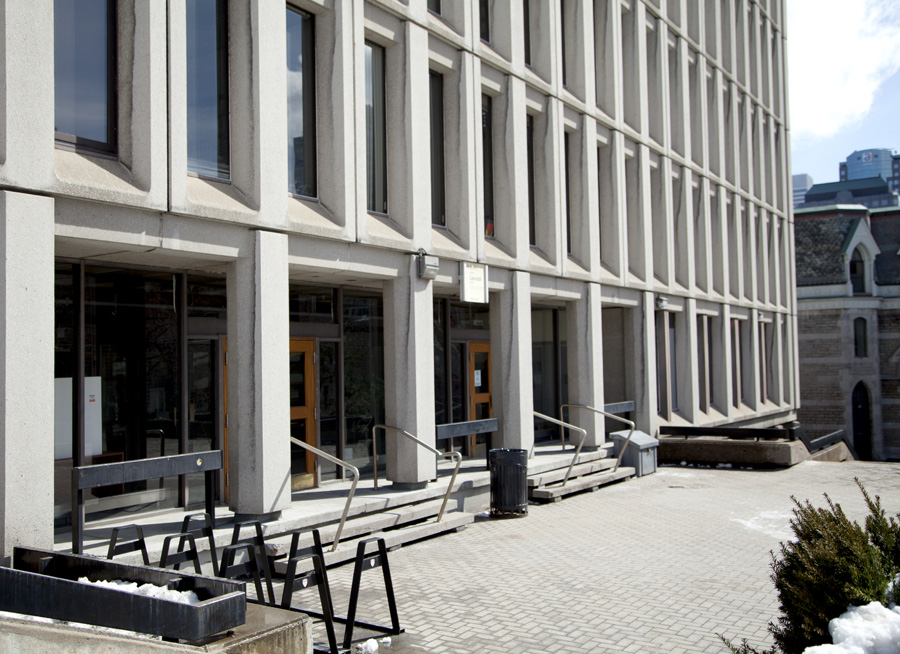At this academic year’s first Senate meeting on Sept. 19, student representatives, faculty, and administration reviewed the Final Report on the Provost’s Task Force on Indigenous Studies and Indigenous Education. Senate also delivered reports on cases of sexual harassment on campus during the 2016-2017 academic year, and discussed improvements within Counselling Services including shortened wait times for students.
Development of the Indigenous Task Force
At the beginning of his presentation on the Provost’s Task Force, Provost and Vice-Principal (Academic) Christopher Manfredi pointed out the need to improve McGill's efforts in Aboriginal education. He launched a task force on Indigenous education in Fall 2016 and spent this summer implementing it.
“As we discovered more than a year ago, […] we’re actually doing quite a bit [in the area of indigenous education], but we can do more,” Manfredi said. “We can do more in a more coordinated way, so what we need to do is to progress the past, invest in the present, and build to the future.”
In the report, the task force asked the university to create a second staffed Indigenous Recruitment Officer position to engage directly with indigenous students and identify their academic interests at McGill. Whereas in 2016 there was reported to be 300 indigenous students enrolled at McGill, the Provost’s academic plan aims to increase that number to at least 1,000.
Manfredi also highlighted recent initiatives to make attending McGill more feasible to students from a variety of backgrounds, such as McGill’s new acceptance of transfer credits from Ontario colleges and the new Youth in Care Bursary for students who spent time in foster care or youth protection.
“The intention [of these initiatives] is to make McGill accessible for capable students with a wide variety of backgrounds,” Manfredi said. “Beyond opening doors, we must reduce barriers to entry.”
Reported increase of sexual harassment claims
According to the Annual Report on the Policy on Harassment, Sexual Harassment and Discrimination Prohibited by Law prepared by Associate Provost (Equity and Academic Policies) Angela Campbell, there were 42 inquiries and complaints of harassment, sexual harassment, and discrimination last year, higher than the yearly average of 36 cases.
The report indicated that 36 per cent of complainants during the 2016-2017 academic year were undergraduate students, while 42 per cent of respondents were academic staff. The total number of student respondents increased, and male respondents nearly doubled from 20 to 38 in the past two years.
62 per cent of the cases did not proceed beyond the inquiry stage, during which a complainant brings forward concerns about their experience with sexual harassment to an Assessor or the Senior Equity and Inclusion Officer, Pascale Legros. After the inquiry stage, both parties then decide whether or not to carry out a full investigation into the complaint. This year, 7 per cent of the complaints were withdrawn in the process and the remaining 31 per cent proceeded to a full investigation.
“[Having] 31 per cent of cases proceed with a formal investigation [is] actually quite a significant proportion," Campbell said. "The year before, only 10 per cent of cases went to a formal investigation. Last year also saw the highest number of cases ever since the policy’s establishment go through a full investigation process.”
Committee on Student Services
After facing criticism last year over the capacity of McGill’s Counselling and Mental Health Services to serve all students, the Committee on Student Services adopted a Stepped Care Model to expand counselling options. Led by Deputy Provost (Student Life and Learning) Ollivier Dyens, the committee spearheaded the inclusion of new forms of treatment, including Therapist Assisted Online programs to group counselling, while doubling the number of Client Care Clinicians assigned to each student as their mental-health care provider.
“Hopefully the services will greatly improve this year, so that’s something I am really, really happy to report on,” Dyens said. "[Nonetheless], we still need all the advice, suggestions, and ideas that we can get.








